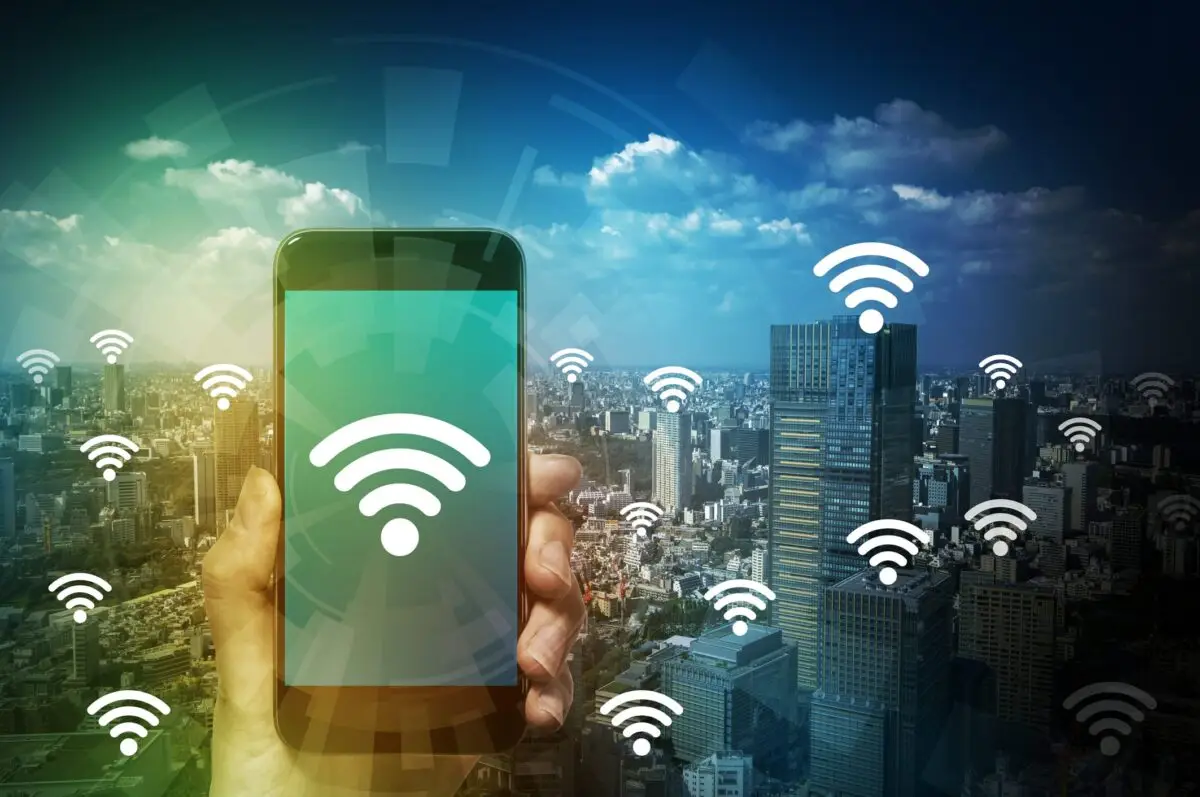Using free Wi-Fi in the UK, or anywhere else, comes with both benefits and potential dangers. It’s essential to be aware of the risks and take necessary precautions. Here are some benefits and dangers associated with using free Wi-Fi:

Benefits:
- Cost Savings: One of the most apparent benefits of using free Wi-Fi is cost savings. It allows you to access the internet without incurring additional data charges.
- Convenience: Free Wi-Fi is widely available in public spaces such as cafes, airports, hotels, and libraries, providing convenience for users who need internet access on the go.
- Accessibility: Free Wi-Fi enhances internet accessibility, especially for those who may not have a mobile data plan or need a stable connection for specific tasks.
- Productivity: Access to free Wi-Fi enables users to be more productive by allowing them to work, communicate, or access information remotely.
- Social Connectivity: Free Wi-Fi facilitates social connectivity, as people can easily connect with friends and family through messaging apps or social media platforms.
Dangers:
- Security Risks: Public Wi-Fi networks are often less secure than private networks. Cybercriminals may exploit vulnerabilities to intercept sensitive data such as login credentials, personal information, or financial details.
- Man-in-the-Middle Attacks: Attackers can position themselves between your device and the network, intercepting and altering the communication. This allows them to capture sensitive information.
- Unsecured Networks: Some free Wi-Fi networks may lack proper security measures, making it easier for hackers to gain unauthorized access to connected devices.
- Rogue Hotspots: Cybercriminals may set up rogue Wi-Fi hotspots with names similar to legitimate ones to trick users into connecting. Once connected, they can monitor and capture data.
- Malware Distribution: Malicious software can be distributed through free Wi-Fi networks. When connected, your device may be vulnerable to malware attacks.
Tips for Safe Use of Free Wi-Fi:
- Use Virtual Private Network (VPN): A VPN encrypts your internet connection, providing a secure tunnel for your data to pass through, which is especially important when using public Wi-Fi.
- Avoid Sensitive Transactions: Avoid accessing sensitive information, such as online banking or shopping, when connected to public Wi-Fi.
- Update Security Software: Ensure that your device’s security software, including antivirus and anti-malware programs, is up to date.
- Forget Networks After Use: Disable automatic connection to Wi-Fi networks and manually forget the network once you are done using it.
- Enable Two-Factor Authentication: Adding an extra layer of security, such as two-factor authentication, can help protect your accounts even if login credentials are compromised.
- Use HTTPS: Whenever possible, use websites with “https://” in the URL, as this indicates a secure connection.
By being aware of the potential risks and implementing security measures, you can make more informed decisions when using free Wi-Fi in the UK or anywhere else.
